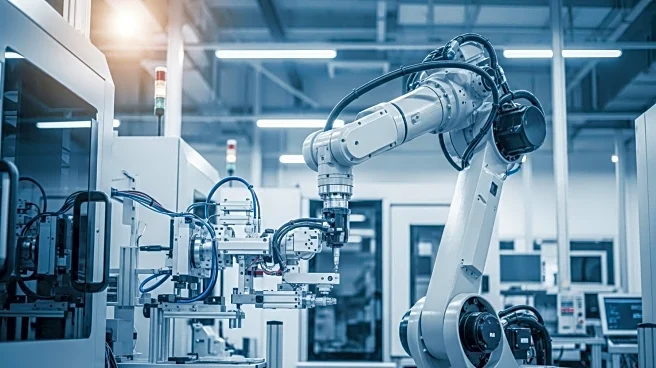What's Happening?
The manufacturing sector is experiencing a significant brain drain crisis as experienced workers retire, leaving behind a skills gap that is difficult to fill. In June 2025, the sector lost 7,000 jobs, with 415,000 positions remaining unfilled across the U.S. This shortage is exacerbated by the challenge of attracting and retaining employees with the necessary skill sets. The State of Smart Manufacturing report identifies the lack of skilled workers as a major barrier to competition. To address this, manufacturers are urged to implement systems for capturing and transferring institutional knowledge before it retires, ensuring operational standards are maintained.
Why It's Important?
The loss of experienced workers poses a threat to production quality and operational efficiency, impacting the manufacturing sector's ability to meet demand. Without proper knowledge transfer systems, critical expertise walks out the door, leading to operational delays and reduced production capacity. Addressing this skills gap is crucial for maintaining competitiveness and ensuring the next generation of workers is equipped to fill the roles left by retiring employees. Implementing smart technology and connected worker systems can help bridge the gap, improving training and employee retention while safeguarding institutional knowledge.
What's Next?
Manufacturers are encouraged to focus on three strategies to address the knowledge gap: digitizing work instructions, embedding quality in digital operations, and providing real-time feedback. These measures aim to streamline onboarding processes, enhance product quality control, and ensure consistent performance across all experience levels. By capturing and digitizing decades of knowledge, manufacturers can preserve the expertise needed for the future workforce, empowering employees to maintain operational excellence. The successful implementation of these strategies will define the future of the industry, ensuring that human capital is preserved and leveraged effectively.








